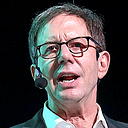What do you want to look back on at the end of your life?
Years ago, when I was a practicing psychiatrist I did house call to dying patients and their families. Jack was such a patient.
Jack: I don’t think I’ve ever done anything important.
Me: What? You have a hospital named after you. You’ve created an industry and thousands of jobs.
Jack: I have all the admiration, love and respect that money can buy and that’s all it’s worth. I’m not really close to anyone … not my wife, not my ex’s, not my children from three marriages and not my friends. I always played it close to the chest and never let anyone in and now I’m paying the price. Everything I thought was important, turned out to be unimportant and everything I thought was unimportant, turned out to be important. Maybe, just maybe, I out-smarted myself.
Getting to know people like Jack above can teach you a lot about life and what a good life means.
Granted, there are many people — unlike Jack — who are able to feel fulfilled by great accomplishments that benefited others, even if it was at the cost of feeling close to anyone in their personal lives. However, there are many who — like him — feel a sense of emptiness even after a life of great accomplishment.
Reinforcing the lesson Jack taught me, I recalled another man who taught me a different lesson that I have finally learned.
In 1972 a number of years prior to meeting Jack and while attending medical school, I was working part time doing EKG’s at a Jewish Home for the Aged in Jamaica Plains, Massachusetts. It was a clean and nice facility, but like most of its kind, a “waiting station” before people died. So many of the halls were filled with the infirm elderly in wheel chairs, just staring. It was a very depressing sight for someone my age, with much of my life ahead of me.
On one day I came into the room of Mr. Cohen, a spry, energetic and very much alive man in his eighties. He was such a stark contrast to the rest of the residents there, that I said to him: “You seem so full of energy and so full of life. Why are you living here?”
He replied, “I want to live here.”
His response seemed incredulous to me and I responded with: “I don’t get it. Why would someone like you want to live in a place like this?”
He looked at me and said, “Pull up a chair” and proceeded to try to teach me a lesson about life.
“Nearly seventy years ago, my wife and I escaped the Russia. I can’t count the number of times she saved my life and I saved hers. We moved to Boston and I had a good job owning a tailor shop and we raised a great family, but they have their lives with their children. And since I am really okay, I tell them they don’t have to go out of their way to visit since I am fine and I am helping their mom,” he explained.
“I understand, but I still don’t get why you’re here,” I interrupted.
“Don’t be so impatient,” he replied, “I’m getting to my point. Five years ago, my beloved Goldie had a massive stroke and she lives in a room two floors above us. She doesn’t speak. Some days she smiles at me when I come in and I like to believe it’s because she recognizes me, but I’m probably kidding myself.”
“I understand, and I have to be going to my next patient, but I still don’t get it. You could visit her and live elsewhere and not live in such a — if you’ll pardon the expression, rather depressing — place,” I said rather un-empathically.
“You don’t seem to understand,” Mr. Cohen explained, “every day I get up, take a shower, get dressed and go to Goldie’s room where I clean up the urine she is sometimes laying in, bathe her, change the diaper she wears, dress her and braid her hair the way it was in the old country. Then I sit and read my Jewish newspaper.”
“That’s very loving, but you could still live elsewhere and do that,” I replied.
“Doctor,” he said emphatically, “I like being here, because every day I get to give my Goldie dignity.”
“That’s wonderful, but you could still live elsewhere,” I said, continuing to be puzzled and heading for the door to see my next patient.
Just before I left, Mr. Cohen had a final comment to make. “Doctor, I do it, because she would do it for me. Maybe someday you will get it.”
Mr. Cohen, you were right. My someday is now and I get it.
When will your someday be?
What do you want to look back on at the end of your life?
First we are children to our parents,
then parents to our children,
then parents to our parents,
then children to our children.
-Milton Greenblatt, M.D.
as quoted in Get Out of Your Own Way
by Mark Goulston, M.D. and Philip Goldberg
